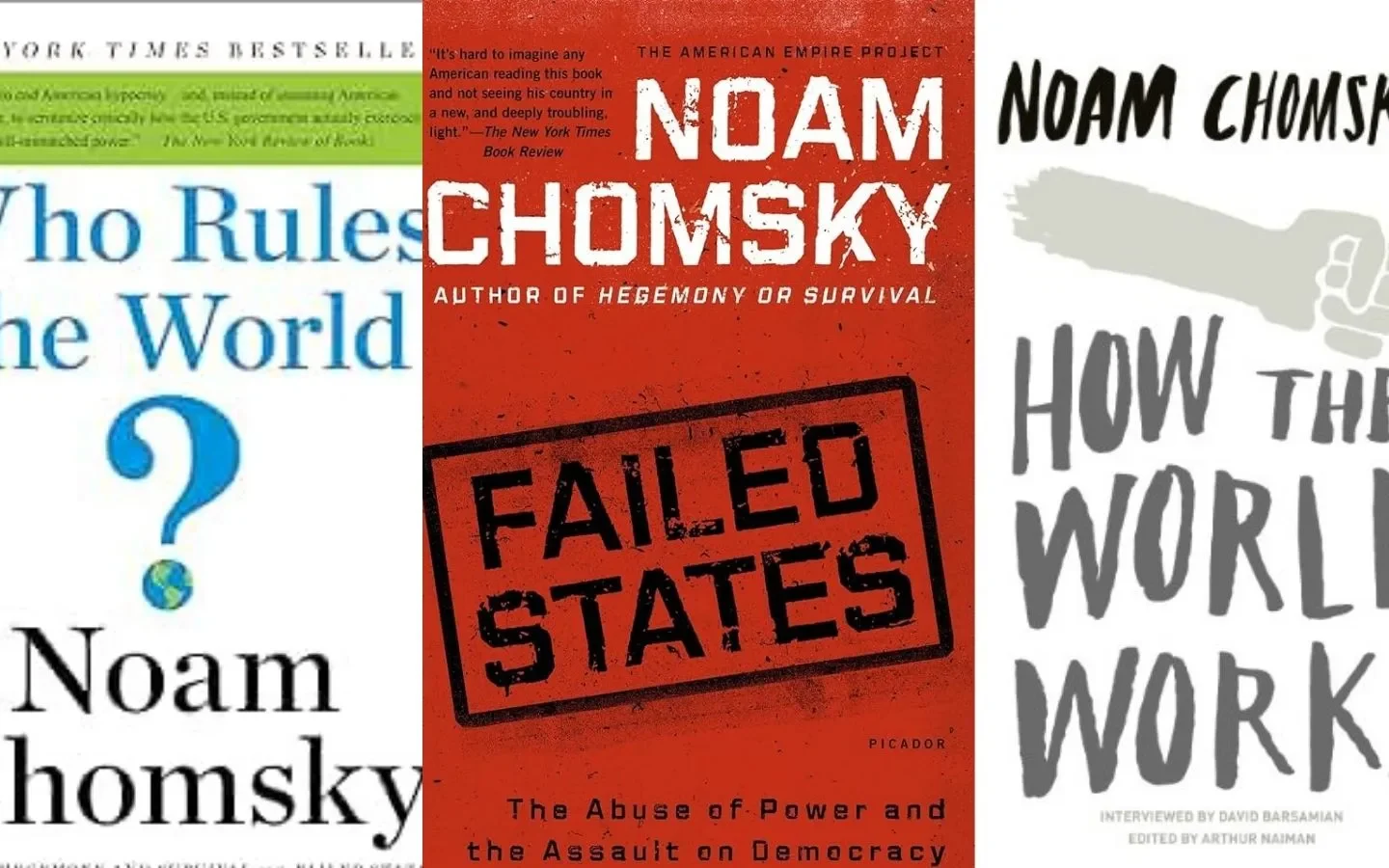Noam Chomsky is a renowned linguist, philosopher, and activist. In this article, we will explore five of his most influential books, which delve into critical issues such as American imperialism, media control, the Israeli-Palestinian conflict, and the global political and economic landscape. Chomsky’s incisive commentary challenges conventional narratives and exposes the hidden forces shaping our world, making his work essential for anyone seeking to understand the complexities of our time.
Who Rules the World?
In his incisive and thought-provoking book, “Who Rules the World?”, Noam Chomsky delves into the intricate web of power that governs our world. He challenges the prevailing narrative of American exceptionalism. Exposing the contradictions between the United States’ rhetoric of democracy and human rights and its often-questionable actions. With meticulous research and sharp analysis, Chomsky dissects the inner workings of American imperialism. Highlighting the role of corporations, the wealthy elite, and the media in shaping global discourse. He examines the conflicts in Iraq, Afghanistan, and Israel-Palestine. Providing nuanced insights into the dynamics of power and the consequences of unchecked ambition. Chomsky’s work is a timely and essential contribution to understanding the complex geopolitical landscape of our time.
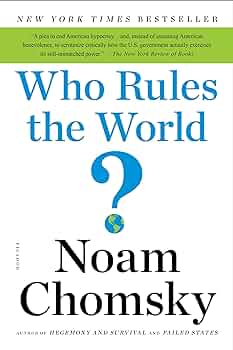
Media Control: The Spectacular Achievements of Propaganda
In his insightful and thought-provoking book, “Media Control: The Spectacular Achievements of Propaganda,” Noam Chomsky delves into the intricate relationship between the media and power. Exposing the subtle yet pervasive influence of propaganda in shaping public opinion. Chomsky meticulously dissects the mechanisms employed to manipulate. And control the narrative, citing historical examples and contemporary instances to illustrate his points. He argues that the media, often touted as a bastion of truth and objectivity, is far from immune to the influence of powerful interests. Serving instead as a conduit for propaganda that subtly guides public perceptions and preferences. Chomsky’s scathing critique challenges readers to critically examine the information they consume, urging them to question the underlying agendas and biases that may shape their understanding of the world.
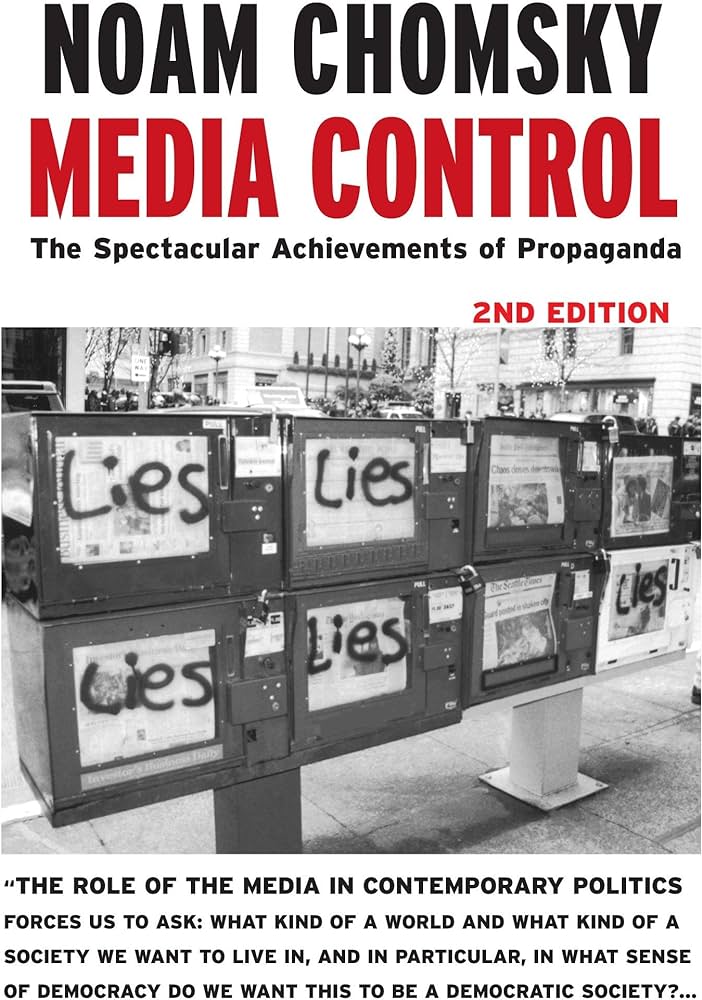
On Palestine
In “On Palestine,” Noam Chomsky and Ilan Pappé provide a critical and insightful examination of the Israeli-Palestinian conflict. Offering a nuanced perspective that challenges prevailing narratives. They trace the historical roots of the conflict, highlighting the impact of British colonialism, Zionist aspirations, and the displacement of the Palestinian population. The authors delve into the complexities of the occupation, analyzing Israel’s military actions, human rights violations, and the plight of Palestinians. They also explore the prospects for peace, assessing the viability of various proposed solutions, including the one-state and two-state options. Throughout the book, Chomsky and Pappé emphasize the importance of international law. And the role of the United States in shaping the conflict’s trajectory. This thought-provoking work challenges readers to reconsider their understanding of the Israeli-Palestinian conflict. And to engage with the perspectives often marginalized in mainstream discourse.
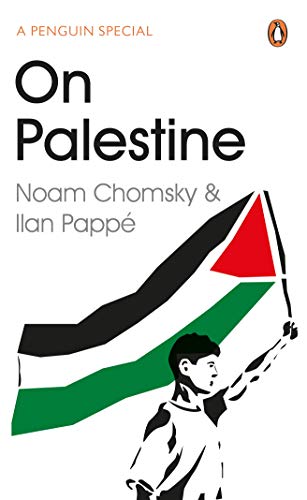
How the World Works
In “How the World Works,” Noam Chomsky, one of the most influential intellectuals of our time. Provides a thought-provoking and insightful analysis of the global political and economic landscape. Through a series of interviews conducted by David Barsamian, Chomsky delves into critical issues. Such as American imperialism, corporate power, and the erosion of democracy. His incisive commentary challenges conventional narratives and exposes the hidden forces shaping our world. This book is an essential read for anyone seeking to understand the complexities of the contemporary world. And the challenges we face in shaping a more just and equitable future.
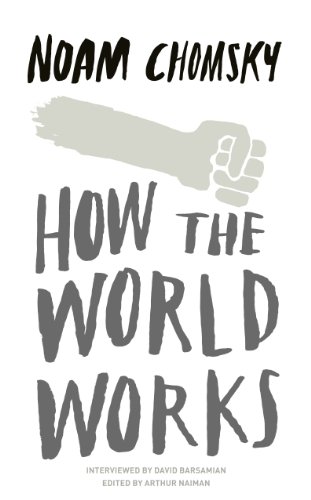
Failed States: The Abuse of Power and the Assault on Democracy
In his provocative and meticulously documented work, “Failed States: The Abuse of Power and the Assault on Democracy,” Noam Chomsky challenges the prevailing narrative of the United States as a beacon of democracy, instead painting a stark picture of a nation increasingly resembling the very “failed states” it intervenes against. Chomsky dissects the hypocrisy and contradictions inherent in American foreign policy. Exposing the nation’s disregard for international law and its own flawed democratic institutions. His analysis is both scathing and insightful, offering a compelling critique of the United States’ role in shaping the global order.





